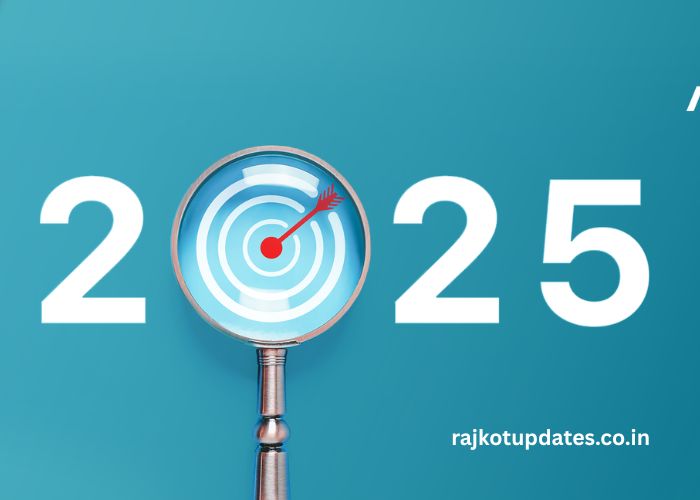The financial world is changing faster than ever in 2025. With new technology, online banking, and investment tools becoming more common, people are now looking for easier and more effective ways to manage their money.
This is where wheon.com finance tips come into play. The platform offers a collection of useful and up-to-date advice for individuals, businesses, and investors who want to stay ahead. Whether you are trying to save more, invest smarter, or understand digital banking, wheon.com finance tips help you make better decisions.
In this blog post, we will explore how these finance tips are helpful in today’s economy. We’ll answer common questions and offer a clear understanding of what makes financial success possible in 2025. We will also look at technologies like AI, digital-only banks, and the role of sustainability in financial choices.
Key Points:
- Wheon.com offers easy-to-understand financial advice.
- The finance tips focus on AI, cybersecurity, and digital banking.
- Learning and adapting is key to financial success in 2025.
What Are The Top Finance Tips To Follow In 2025?
In 2025, finance is all about being digital, smart, and secure. Wheon.com finance tips suggest focusing on five major areas this year: artificial intelligence (AI), cybersecurity, neobanks (digital-only banks), sustainability, and embedded finance.
Artificial intelligence is now used in many ways—from chatbots that help answer bank questions to robo-advisors that offer investing suggestions. For example, many people use AI apps to track their spending and recommend savings plans based on their behavior. This kind of personalization can make a huge difference in long-term planning.
Cybersecurity is just as important. With so much of our financial data online, protecting it is a big concern. Wheon.com recommends using multi-factor authentication, keeping software up to date, and being cautious of phishing scams. In fact, several new banks now offer biometric logins, making online banking safer and easier.
Neobanks have become a powerful tool for younger generations who want fast, mobile-friendly banking. These banks often offer low or no fees, instant transfers, and smart saving options. An example is Chime, a U.S.-based neobank that offers fee-free overdrafts and automatic savings options.
The platform also emphasizes the importance of sustainable and green finance. More people are choosing to invest in companies that care for the environment. Wheon.com suggests looking into ESG (Environmental, Social, and Governance) funds and green bonds.
Reminder: Staying up-to-date with financial trends is essential to making smarter money choices.
Table 1: Traditional Bank vs Neobank
| Feature | Traditional Bank | Neobank |
| Physical Branches | Yes | No |
| Fees | High | Low or None |
| Customer Support | Phone or In-Person | App or Chatbot |
| Tech Integration | Moderate | High |
| Operating Hours | Limited | 24/7 |
How Is AI Changing The Way We Manage Money?
Artificial intelligence is transforming the way people manage their finances. Wheon.com finance tips show how AI is no longer just a futuristic concept—it’s now part of everyday money decisions. From mobile apps to investment platforms, AI helps people save time and money by automating tasks and offering personalized advice.
AI tools can categorize spending, send reminders to pay bills, and even suggest better investment options. For instance, apps like Mint or YNAB (You Need a Budget) use AI algorithms to analyze user spending and offer budget advice. This can help users avoid debt, improve savings, and stay organized.
AI also plays a role in fraud detection. Banks use machine learning to spot unusual transactions, sending alerts before any serious damage happens. Wheon.com recommends using banks that invest in such technologies for better safety.
However, it’s important to note that AI is not without risks. As AI becomes more powerful, questions about data privacy and control arise. Wheon.com suggests using only trustworthy apps that follow proper data protection rules and give users control over their personal information.
Note: AI helps you save time, but always double-check before acting on its suggestions.
Table 2: Benefits of AI in Personal Finance
| Benefit | Example Use Case |
| Budget Management | Apps that track and categorize spending |
| Investment Advice | Robo-advisors like Betterment or Wealthfront |
| Fraud Detection | Alerts for suspicious bank activity |
| Credit Monitoring | Real-time score updates via apps |
Why Is Cybersecurity Important In Digital Finance?
As more people shift to digital banking, the risk of cyber threats has increased. According to wheon.com finance tips, cybersecurity is not just a concern for big banks—it matters to everyone who uses a smartphone or computer to manage money. Identity theft, fraud, and phishing are major issues in 2025.
One of the biggest tips from Wheon is to use multi-factor authentication (MFA). MFA adds an extra layer of protection beyond just a password. For example, after entering your password, the bank sends a code to your phone that must be entered before logging in.
Another essential measure is using secure Wi-Fi connections. Avoid logging into your bank account using public Wi-Fi at airports or cafes. Hackers can easily steal your information in these settings. Wheon.com also suggests using antivirus software and keeping it updated.
Recently, banks have started using biometric security—like facial recognition or fingerprints—to improve access security. This reduces the risk of password theft. Plus, banks are investing in real-time fraud detection systems that can freeze accounts within seconds if unusual activity is found.
While technology helps protect your money, personal awareness is equally important. Always check for secure website links (https://) and never share personal details with unverified sources.
How Are Super Apps And Embedded Finance Changing Daily Transactions?
Super apps and embedded finance are becoming more common in 2025, and wheon.com finance tips highlight their impact. A super app is an all-in-one application that offers many financial services in one place. Examples include Paytm, Cash App, or WeChat Pay. These apps let users send money, invest, buy insurance, and shop online without switching platforms.
Embedded finance goes one step further. It integrates banking or financial tools into non-financial platforms. For example, a travel app might let users buy travel insurance while booking tickets, or a ride-sharing app might offer instant driver loans. This seamless experience makes financial services more convenient and accessible.
Wheon.com says these trends help people save time and avoid traditional banking barriers. Businesses also benefit by increasing user engagement and revenue. However, users must be cautious and use only apps from trusted sources.
Reminder: Use super apps only after reviewing user reviews and privacy settings.
This evolution is not just for individuals—businesses can also benefit. Online stores can offer “buy now, pay later” options through embedded finance, making it easier for customers to afford products. As these systems grow, financial access expands to include more users, even in remote areas.
What Role Does Green Finance Play In 2025?
Green finance is a growing part of financial decision-making. More people want their money to support causes they care about, like climate change, clean energy, and social justice. According to wheon.com finance tips, investing in sustainable products is not just a trend—it’s becoming a standard.
Green bonds are a good example. These are bonds issued to fund environmentally friendly projects like solar energy or water conservation. ESG (Environmental, Social, Governance) funds also help investors support companies with good environmental records.
Governments and banks are getting involved too. In many countries, banks now offer lower interest rates on loans for eco-friendly homes or electric vehicles. Businesses are also evaluated based on their ESG scores, which affect their credit ratings and investor trust.
Wheon.com suggests that individuals and small businesses should review the sustainability of their investments. Look for funds labeled “green” or “ESG” when making investment choices. Even small actions, like choosing a bank that funds clean energy projects, can make a difference.
Investing in sustainability also brings financial rewards. Many green companies perform well on the stock market because consumers trust them. This makes green finance both ethical and profitable.
Conclusion
As we move through 2025, managing money means adapting to fast-changing trends. From AI to green finance, the future is all about technology, security, and values. Wheon.com finance tips serve as a guide for individuals and businesses looking to make informed decisions. Whether you’re new to digital banking or a seasoned investor, there’s something to learn and apply.
Remember that financial health is about knowledge, action, and staying alert to new tools and risks. Wheon.com helps make that easier by offering advice that’s simple and smart. Take time to explore the available tips and apply them to your money goals.
FAQ’s
- What Are Wheon.com Finance Tips?
These are expert suggestions and insights about financial planning, digital banking, investments, and more, designed for modern users in 2025. - How Can I Use AI To Improve My Finances?
You can use AI-based apps for budgeting, fraud detection, and getting personalized investment advice. - Are Neobanks Safe To Use?
Yes, many neobanks follow strict digital safety rules and offer secure services like instant transfers and budgeting tools. - What Is Embedded Finance?
It’s when financial tools like loans or payments are built directly into non-banking apps, making transactions easier. - Why Should I Care About Green Finance?
Because it lets you support eco-friendly projects and companies while also making smart financial returns.



